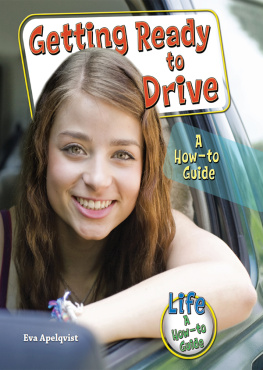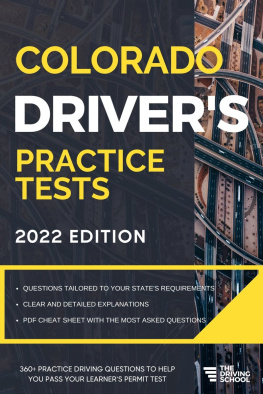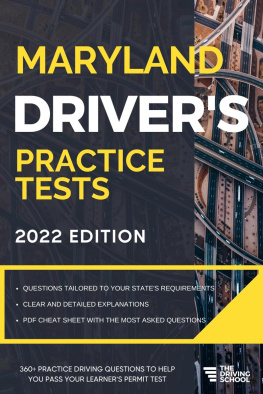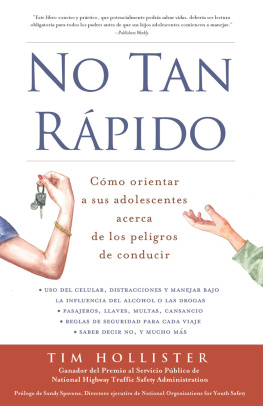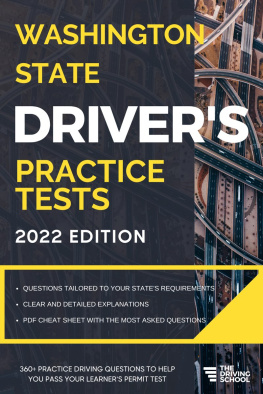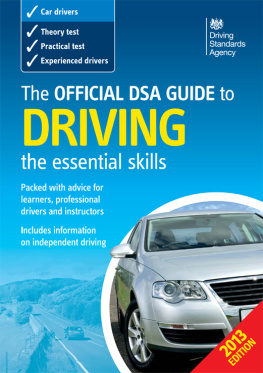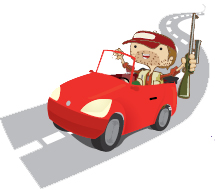
Zoom Zoom Zoom!
Are you ready to hit the open road? Not so fast! Driving is a serious responsibility. Before you get behind the wheel, get informed. Get ready to drive by reading up on how to get your learner's permit and how to prepare for the exam. Learn about the restrictions for new drivers and state laws. Make sense of the rules of the road with this informative how-to guide.
About the Author
Eva Apelqvist is a full-time writer and translator. She has published a teen novel and magazine and Web articles for children and adults. This is her first book for Enslow Publishers, Inc. To learn more about her visit, www.evaapelqvist.com.
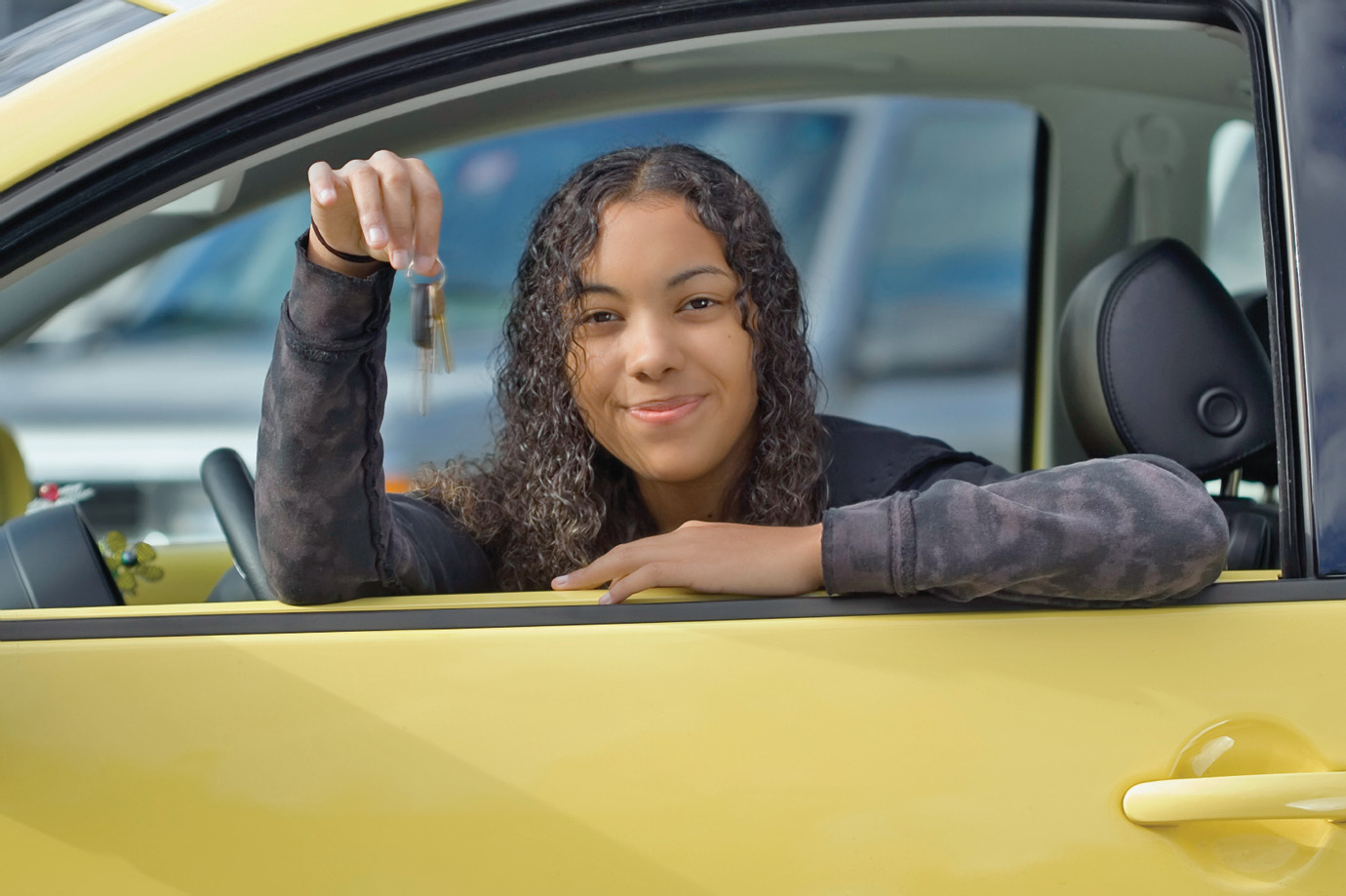
Image Credit: Christine Glade/iStockphoto.com
Life is a highway. I want to ride it all night long.
Tom Cochrane, Life Is a Highway
"When I learn how to drive, I want to get out on the road, get on the highway. I want to drive in the city. I won't have to ask my parents to go to a friend's house. I can do what I want. I can leave the house when I want to. I can go on road trips. I want to go to California."
D. J., age 15
It was fun to find that shiny quarter under your pillow the first time you lost a tooth. When you turned double digits, you got a birthday bash for all your friends, with pizza, ice cream, cake, and those little paper things that uncurl and make irritating beeps when you blow in them. Remember the excitement of your very first day at kinder-garten and the nervous feeling you had on your first day in high school?
Growing up, you pass a number of milestones, but few of the great events of childhood come close to the thrill of the one youre facing nowlearning to drive. The question is, are you ready? Even if you feel that you are ready and you cant wait to get behind the wheel, not everyone is thrilled about this new milestone. You have probably noticed that manypeople, parents in particular, worry about teens driving. And they have good reason to worry. According to the U.S. Department of Transportation (DOT), car crashes are the leading cause of death for fifteen- to twenty-year-olds. The DOT believes that the high number of car deaths in young drivers is due to immaturity and lack of experience. Studies show that teen drivers are sometimes over-confident and may take risks that more experienced drivers would not. High-risk behaviors include not wearing seat belts, speeding, and driving while under the influence of drugs or alcohol. The DOT is also concerned about the dangerous habits of using cell phones while drivingtext messaging or making phone callsor using other electronic devices, including DVD players and GPS units.
So, why is there such a difference between teen and adult drivers? Scientists who study the brain have examined some teenagers risk-taking behavior, and they have learned some interesting things about the teen brain. Scientists once believed that the brain was fully developed by age twelve. Now, experts have found that this is not truethe teenage brain continues to change. Although the size of the brain stays close to the same, the white and the gray matter continues to grow, bringing with it changes in personality.
The rear part of the brain reaches maturity first. This is the part that controls vision, hearing, touch, and spatial processing. Spatial processing helps you know, for example, that your car will fit into the garage, but not the dog house. This is also the part of the brain that makes it possible to watch out for people on the sidewalk, check your rearview mirror, turn your steering wheel, and use your brakesall at the same time. Theyre all essential in being able to safely operate a car.
But the front part of the brain that helps with decision making is the last to mature. This part deals with things like: What should I do first, text my friend or clean my room? or Should I hurry through that yellow light, or should I slow down and stop?
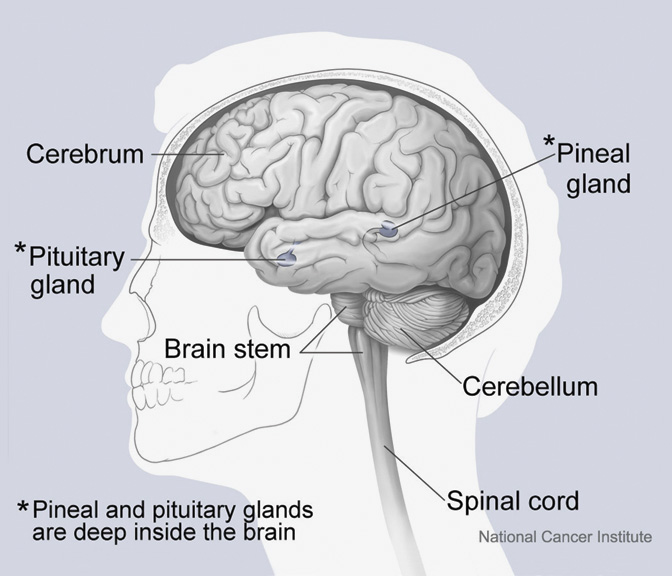
Image Credit: Alan Hoffring/National Cancer Institute
New discoveries show that certain parts of the brain mature later than others.
What do these findings about the teen brain mean? Most experts agree that the teenage brain is prone to making risky choicesspeeding, texting while driving, or trying to impress their friends by other dangerous, thrill-seeking behavior. A few researchers believe that some teens cannot control their tendency toward risky behavior and that they should not be allowed to drive cars until their brains fully mature.
Even though experts may have different ideas about why the teen brain looks the way it does, most agree that teenagers learn quickly, are intelligent, have quick reflexes, and have superior memoryand that these are all good characteristics to help become safe and responsible drivers.
In Tennessee, you can't shoot any game other than whales from a moving car.
Image Credit: Shutterstock.com
John Miller is a driver education teacher. He believes that nothing you do will come close to being as dangerous as driving a car. Still, it is necessary to learn how to drive, he says, especially if you live in a small town with limited public transportation.
If you want to get out of here, Miller says. There is only one way. You have to drive. But Miller believes that we need a better method to determine whether someone is ready to drive. We have an arbitrary system, he says. Its called a birth certificate.
Once you reach your states minimum driving age and pass the written test, you will be allowed to drive on the road. Whether you are ready or not, you will be expected to behave like an adult. There is a life before driving, Miller says. And there is a life after. Before you drive, people cut you some slack, but when you start driving a car, people expect you to be mature.
Karen Sorenson, president of the Wisconsin chapter of Drivers and Traffic Safety Education Association, teaches driver education in the classroom and behind the wheel. She believes that teens who have used riding lawn mowers, or even ridden bikes frequently, are better prepared to head into traffic than those who have not.
There are, no doubt, numerous valid reasons why a young person may want to learn to drive as soon as possible, says Terry Stark, Motor Vehicle Program Specialist at the Wisconsin DOT. For example, it may be to help with family transportation and getting back and forth to school and work, as well as to extracurricular activities.
Stark believes, however, that not everyone is ready to drive when their birthdays roll around. The decision to begin lessons is an important one that should be given thought and consideration. It is the responsibility not only of the teen but also of parents or guardians, he said.
A study by the DOT emphasizes that parents and guardians need to recognize that getting your drivers license is a very important event. To educate new drivers properly and teach them to avoid high risk behavior, the study says, adults have to look at the role a car can play in a young persons life. A car represents freedom, excitement, socialization, companionship, and all-around entertainment, the study authors say.
Next page
